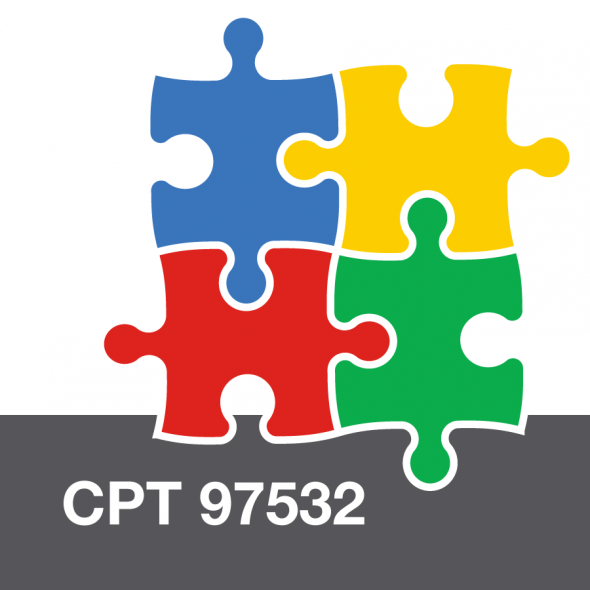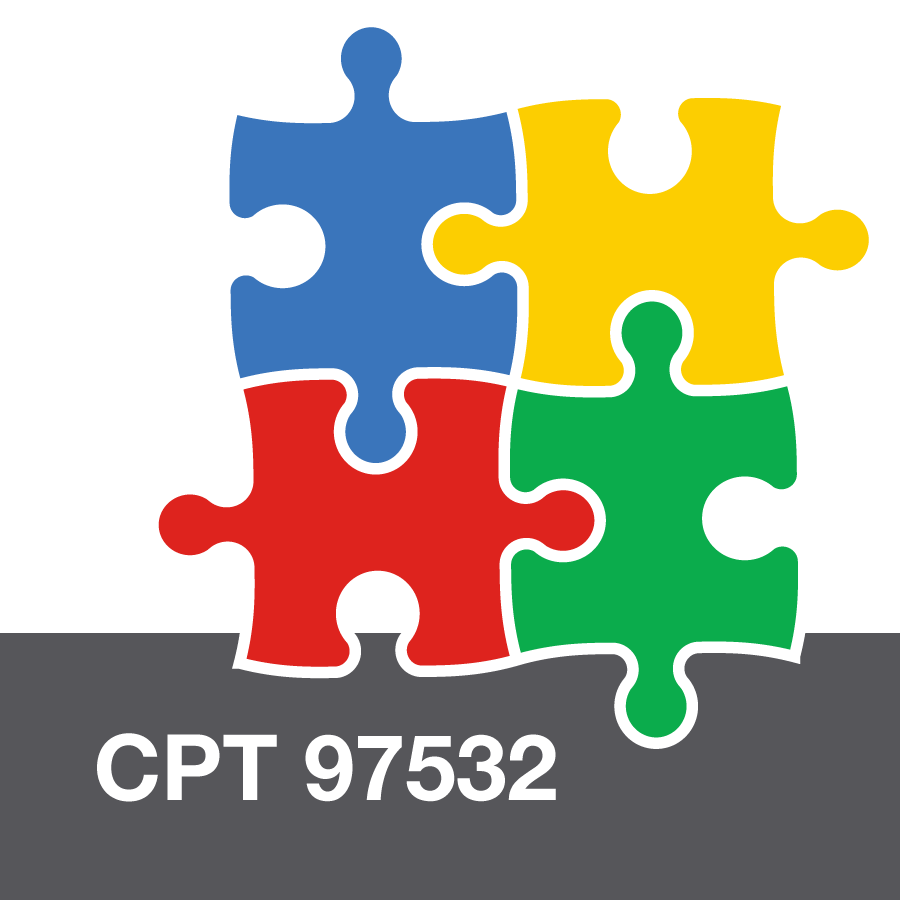
The Definition: This activity focuses on cognitive skills development to improve attention, memory and problem-solving, with direct one-on-one patient contact by the qualified professional, each 15 minutes.
- This intervention would not be appropriate for patients with chronic progressive brain conditions without the potential for improvement or restoration. Therapy performed repetitively to maintain a level of function is not eligible for reimbursement.
- Cognitive skills are an important component of many tasks, and the techniques used to improve cognitive functioning are integral to the broader impairment being addressed. Cognitive therapy techniques are most often covered as components of other therapeutic procedures, and typically would not be separately reported.
- For any services related to the development of maintenance therapies for progressive conditions, code under the most appropriate non-97532.
“Cognitive skill training should be aimed towards improving or restoring specific functions which were impaired by an identified illness or injury, and expected outcomes should be reasonably attainable by the patient as specified by the plan of care. Therefore, cognitive skills training for conditions without potential for improvement or restoration, such as chronic progressive brain conditions, would not be appropriate. Evidence-based reviews indicate that cognitive rehabilitation (and specifically memory rehabilitation) is not recommended for patients with severe cognitive dysfunction. Cognitive skills are an important component of many tasks, and the techniques used to improve cognitive functioning are integral to the broader impairment being addressed. Cognitive therapy techniques are most often covered as components of other therapeutic procedures, and typically would not be separately reported. Activities billed as cognitive skills development include only those that require the skills of a therapist and must be provided with direct (one-on-one) contact between the patient and the qualified professional/auxiliary personnel. These services are also reimbursable when billed by clinical psychologists. Those services that a patient may engage in without a skilled therapist qualified professional/auxiliary personnel are not covered under the Medicare benefit.
Note: The restrictions placed upon cognitive skills development (refer to the limitations section of this policy) do not apply to vision impairment rehabilitation services as defined in Program Memorandum, Transmittal AB-02-78.”
The SLP Novitas LCD states:
“This code describes interventions used to improve cognitive skills (e.g., attention, memory, problem solving), with direct (one-on-one) patient contact by the clinician. It may be medically necessary for patients with acquired cognitive impairments from head trauma, acute neurological events (including cerebrovascular accidents), or other neurological disease.
As stated earlier, speech-language pathology services are covered when performed with the expectation of restoring the patient’s level of function which has been lost or reduced by injury or illness. There must be an expectation that the patient’s level of function will be restored, or significantly improved, in a reasonable (and generally predictable) period of time. When these interventions are used in the setting of chronic, generally progressive, cognitive disorders, there must be a potential for restoration or improvement of function. Therapy performed repetitively to maintain a level of function is not eligible for reimbursement.”
Remember: Medicare also supports the use of 92507 for cognitive-communication intervention.
By Tamala Sammons, M.A. CCC-SLP, Therapy Resource

